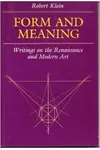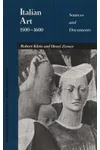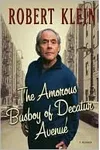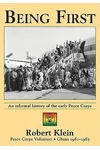Picture a Bronx-born funnyman who turned everyday life into comedy gold—meet Robert Klein! With a career spanning over five decades, this stand-up comedian, actor, and author has tickled funny bones and penned memoirs with his sharp, observational wit. From sold-out HBO specials to his heartfelt autobiography, Klein’s knack for finding humor in the mundane has made him a beloved figure in American entertainment.
Born in 1942, Klein grew up in a Jewish household, surrounded by the vibrant chaos of New York City. His journey from aspiring doctor to comedy icon is a tale of passion, improvisation, and a whole lot of laughs. Let’s dive into the life and legacy of this multifaceted storyteller!
The Making of Robert Klein
Robert Klein was born on February 8, 1942, in the Bronx, to Frieda and Benjamin Klein. Raised in a prototypical 1950s Jewish environment, he was influenced by his father’s living-room comedy and the era’s cultural pulse. Initially set on medicine, Klein attended Alfred University but caught the acting bug, leading him to Yale Drama School. There, he discovered The Second City, Chicago’s famed improv troupe. In 1965, alongside Fred Willard, Klein honed his comedic chops, blending improvisation with social commentary—a foundation for his future success.
Returning to New York, Klein performed at the Improv comedy club, where he met mentor Rodney Dangerfield. His big break came with a role in the 1966 Broadway musical The Apple Tree, directed by Mike Nichols, setting the stage for a career that would blend stage, screen, and page.
Robert Klein’s Unforgettable Stories
Klein’s comedy albums are cornerstones of his legacy, showcasing his ability to weave humor with cultural critique. His 1973 debut, A Child of the 50s, captured the nostalgia and absurdities of his youth, earning a Grammy nomination. Mind Over Matter (1974) tackled the Watergate scandal with biting satire, while New Teeth (1975) featured tracks like “Six Clean Words You Can Say Anywhere,” a playful riff on George Carlin’s famous bit. His 1990 album, Let’s Not Make Love, reflected on the waning sexual revolution with his signature wit.
In 2006, Klein penned The Amorous Busboy of Decatur Avenue: A Child of the Fifties Looks Back, a memoir blending humor and poignancy. The book chronicles his coming-of-age from ages nine to twenty-five, exploring teenage escapades, anti-Semitism at college, and his early career. Klein’s writing style—conversational, evocative, and laced with self-deprecating humor—mirrors his stand-up, making the memoir a literary extension of his comedic voice.
Klein’s work often draws from personal experiences, using characters, sound effects, and shrewd observations. Influenced by Lenny Bruce and Jonathan Winters, his long-form, autobiographical bits broke from traditional joke-telling, paving the way for comedians like Jerry Seinfeld and Billy Crystal, who cite him as an inspiration.
Why Robert Klein Matters
Robert Klein transformed stand-up comedy in the 1970s alongside peers like George Carlin and Richard Pryor. His observational, socially aware style made him a countercultural voice during the civil rights and anti-Vietnam War era. Beyond comedy, his Broadway roles, including a Tony-nominated performance in They’re Playing Our Song (1979), and film appearances in movies like The Owl and the Pussycat and Two Weeks Notice, showcased his versatility. His nine HBO specials, starting with the first-ever in 1975, set a precedent for uncensored comedy programming.
Klein’s memoir and comedy continue to resonate, offering timeless insights into American life. His influence on younger comedians and his ability to connect with audiences through laughter cement his legacy as a trailblazer in comedy and literature.
- Born: February 8, 1942, Bronx, New York
- Key Works: A Child of the 50s, New Teeth, The Amorous Busboy of Decatur Avenue
- Awards: Two Grammy nominations, two Emmy nominations, one Tony nomination
Ready to laugh and reflect? Grab The Amorous Busboy of Decatur Avenue and dive into Robert Klein’s hilarious, heartfelt world!








